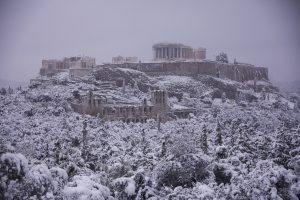Going to China was exciting enough. After all, Xinjiang is a province known for its picturesque scenery, ethnic diversity and rich history. So I was ready to feast my eyes on the tear-inducing beauty of the Tian Shan Mountains, learn about the Silk Road, eat some spicy food and meet people from all over the world.
What I certainly was not prepared for, however, was the spectacle that awaited me in the Xinjiang Grand Theater.
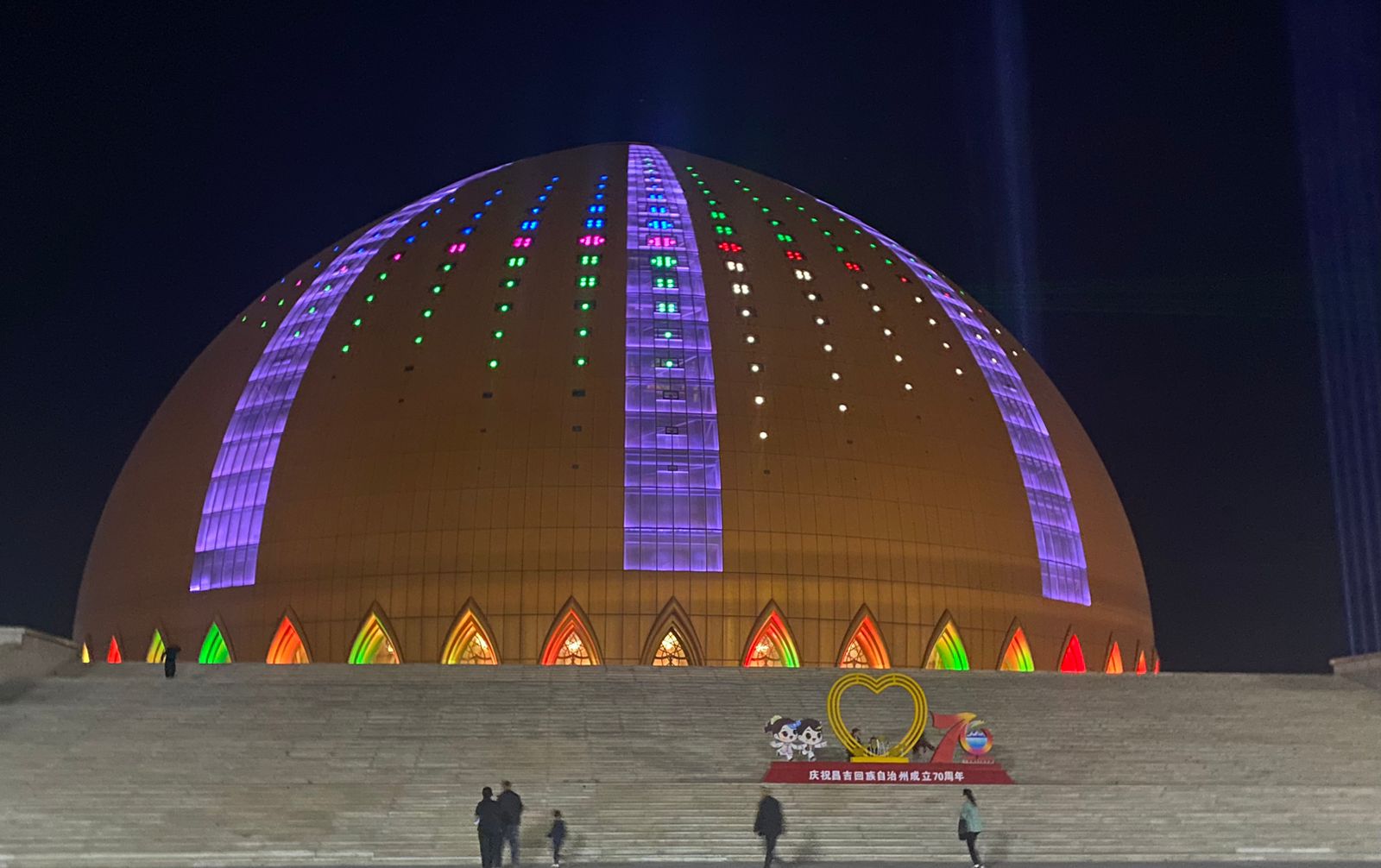
Photos by Jo Pierri
Let’s start with the numbers, shall we? The Xinjiang Grand Theater is a 1.68 billion RMB investment (a little over 200 million dollars) located about 50 kilometers from the province’s capital, Urumqi. It’s an 80,000 sqm attraction on which construction began in 2013 to honor the 60th anniversary of the establishment of the Changji Hui Autonomous prefecture, where it stands, and as part of a wider-reaching reinvigoration of the area. It is shaped like a “snow lotus”, a plant native to the Tian Shan mountains. Standing 80 meters tall, it is the highest dome-shaped building in China. No fewer than 56 arched doors line the building’s circumference, symbolizing each of China’s ethnic groups. As you enter the colossal structure, brightly-colored mosaics heavily influenced by Islamic architecture adorn the walls, while arched trusses encircle the seven-story marvel.
Impressed? I’m just getting started.
The main theater is a spectacle in its own right. The stage covers 4,000 sqm – for comparison, the stage at the Radio City Music Hall is just 680 sqm – and is an amazing 66 meters deep. A dazzling 3,600 sqm of LED screens are positioned along the sides of the stage as well as on the ceiling, while 2,800 computer-controlled lights are positioned strategically around the space. The auditorium can seat an audience of 2,100 and measures 86 meters from side to side.
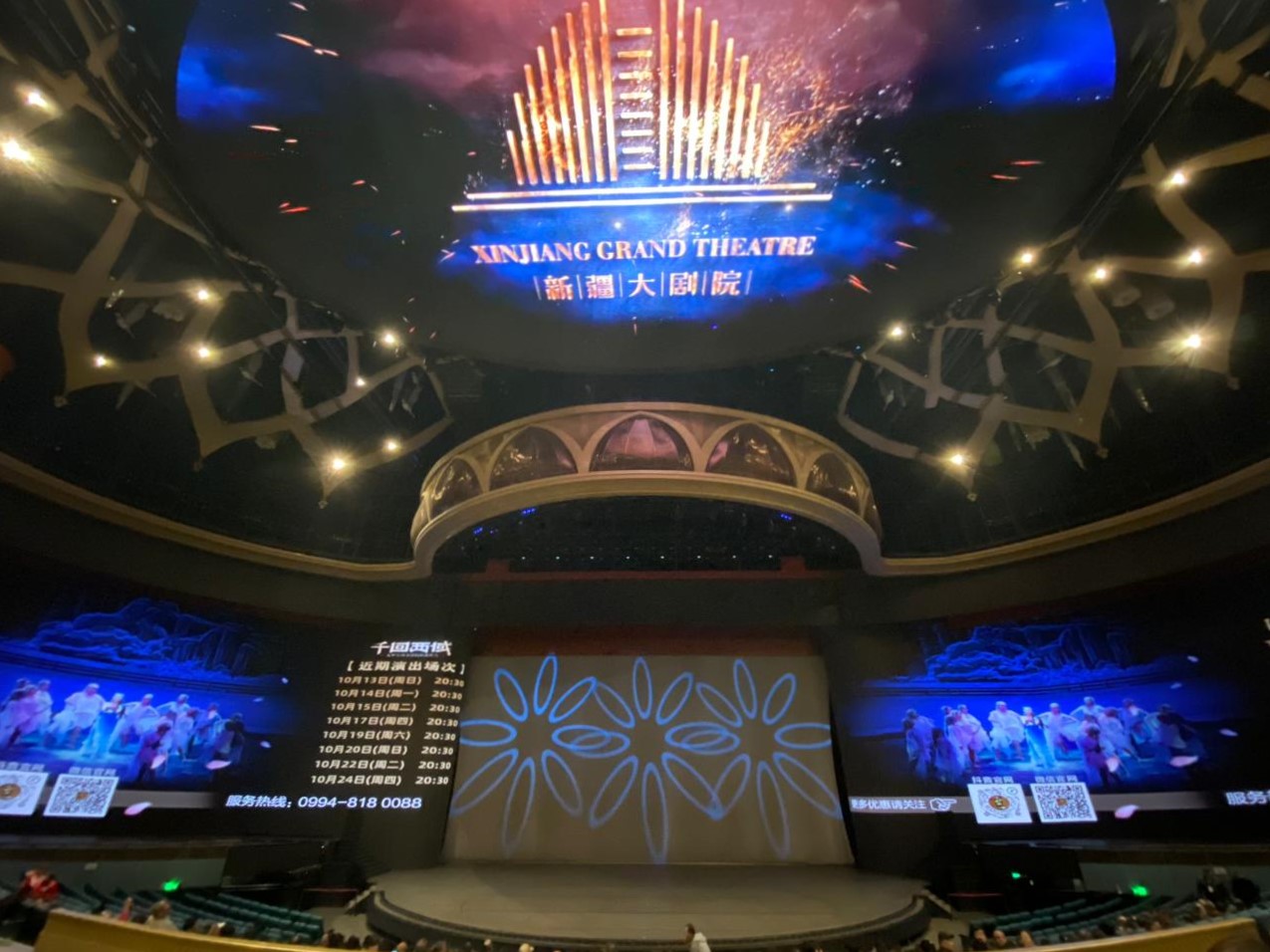
The main show that has been on rotation at the Xinjiang Grand Theater since it opened its doors to the public in 2015 is the “Back to The Silk Road” culture show. One of the world’s largest folk productions, it cost 271 million dollars to stage and showcases the ancient civilizations that flourished along the Silk Road and Xinjiang during its two-thousand-year history. The production features 360 actors from a wide range of ethnic groups, 2000 costumes and several animals (I bet you can’t guess what sort.) In addition, 35 gigantic 3D structures and incredible sound effects are employed to bring history to life.
And this is where the magic happens.
The lights go down and thousands of LED lights flash as a god-like voice makes the necessary introductions, setting the scene. What follows can only be compared to a fever dream or psychedelic experience in its bizarreness.
The stage is aglow once again and half a dozen camels (yes, camels) and horses appear as dozens of actors dance merrily in front of what looks very much like a life-sized snowcapped mountain. Suddenly, the theater begins to shake as an “avalanche” strikes and the peak comes crashing down (literally). The stage gives way, the actors on it seemingly lost forever.
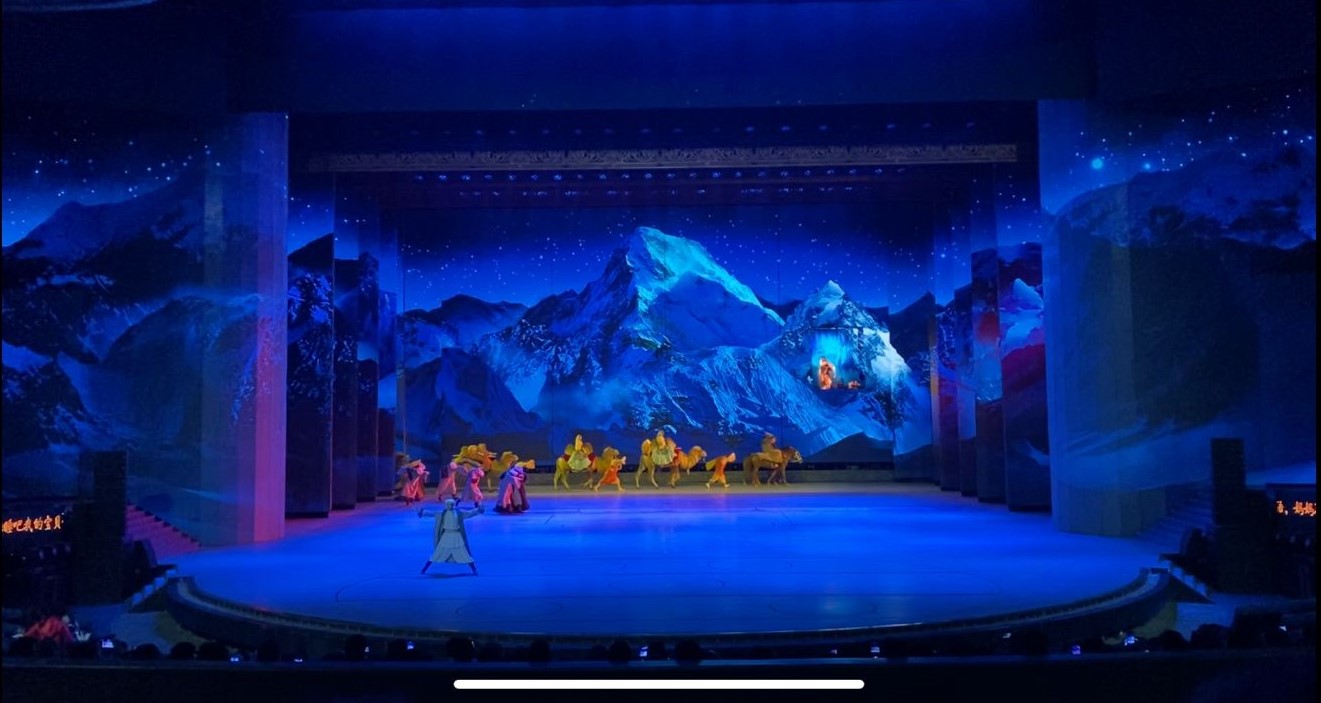
The room goes dark once again. Suddenly, a spotlight illuminates the very back of the stage, where a woman has started to dance on top of an actual waterfall. A dozen more actresses come out and head straight for where the gaping hole was in the stage, though it has now been miraculously transformed into a shallow pool. Both structures disappear as quickly as they appear.
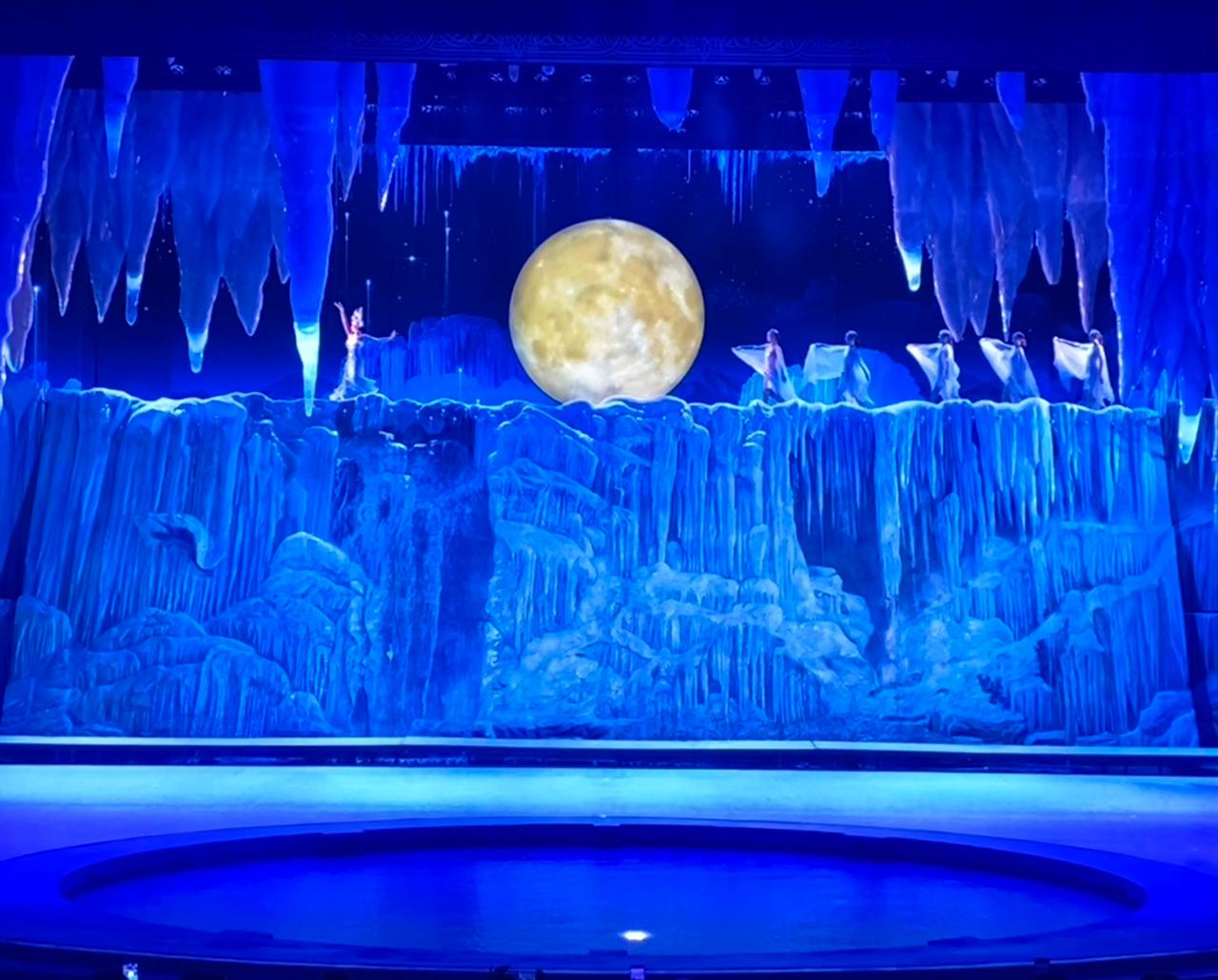
All eyes suddenly turn to the ceiling, where a woman has emerged out of an LED screen suspended on ropes at least 30 meters above the ground.
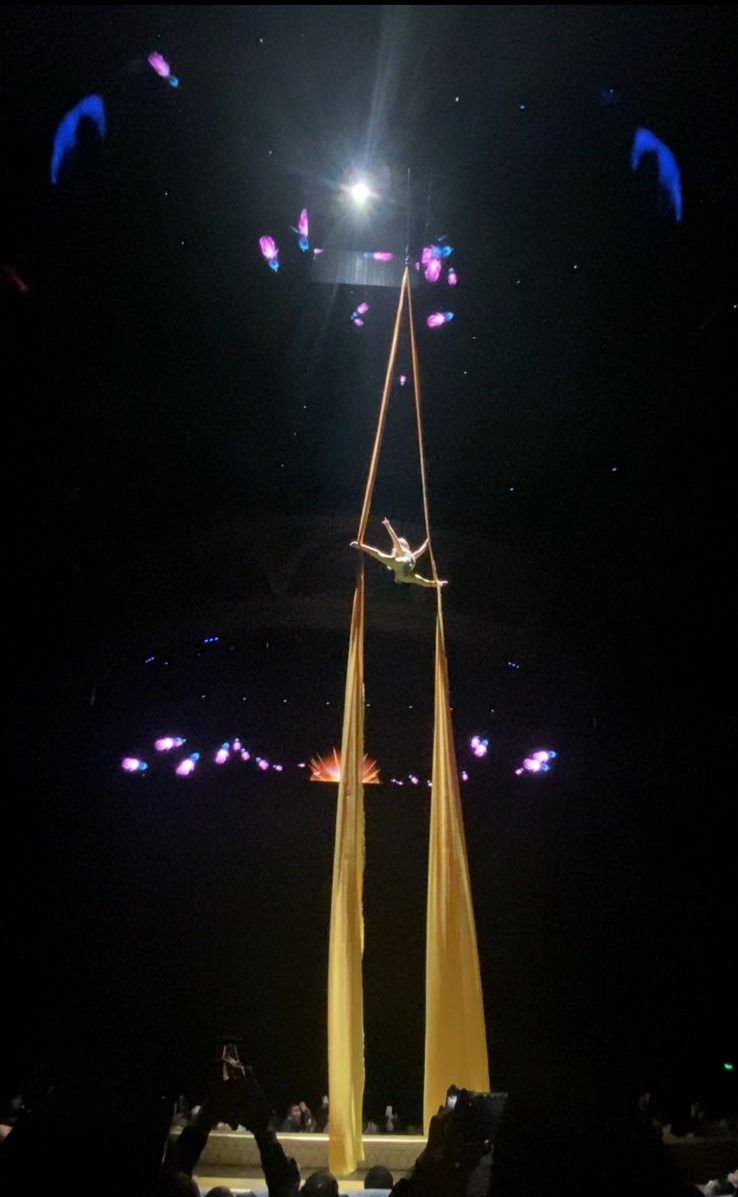
Princesses gliding on hoverboards throw candy to the audience, while horses ran on treadmills against an LED backdrop of the Eurasian steppe and camels breeze down the aisles past the spectators.
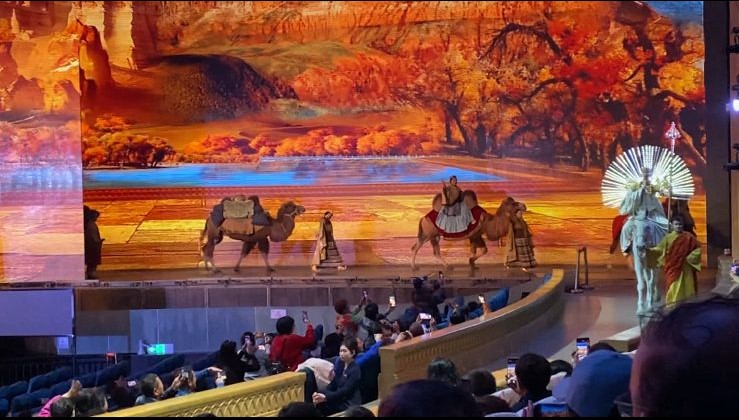
One act features a flying carousel with actors spinning furiously parallel to the stage as at least three dozen more dance in a frenzy.

Another features almost a dozen acrobats flying in harnesses, looking very like fairies dangling off a baby’s mobile.
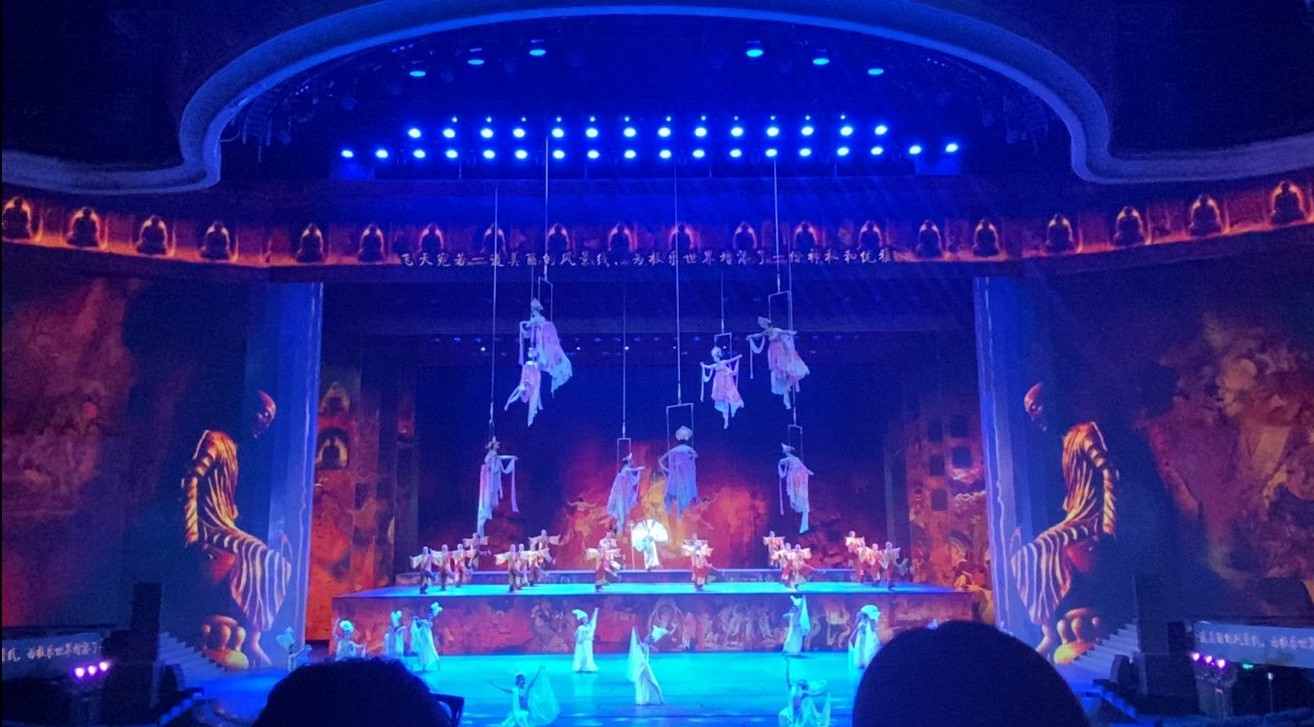
Photo: Jo Pierri
However, the pièce de resistance is the ice-skating rink that emerges out of the stage at the spot the pool occupied about half an hour earlier. Two figure skaters begin throwing each other from end to end in celebration of what I understood to be a grand wedding. The newly-weds walk around the stage to cheering crowds, then graciously head across the ice to the center of the rink. The couple are suddenly lifted high up on a platform and a fountain of water begins to pour into the now-hollow center, creating arches the ice skaters majestically spin through; as one does…
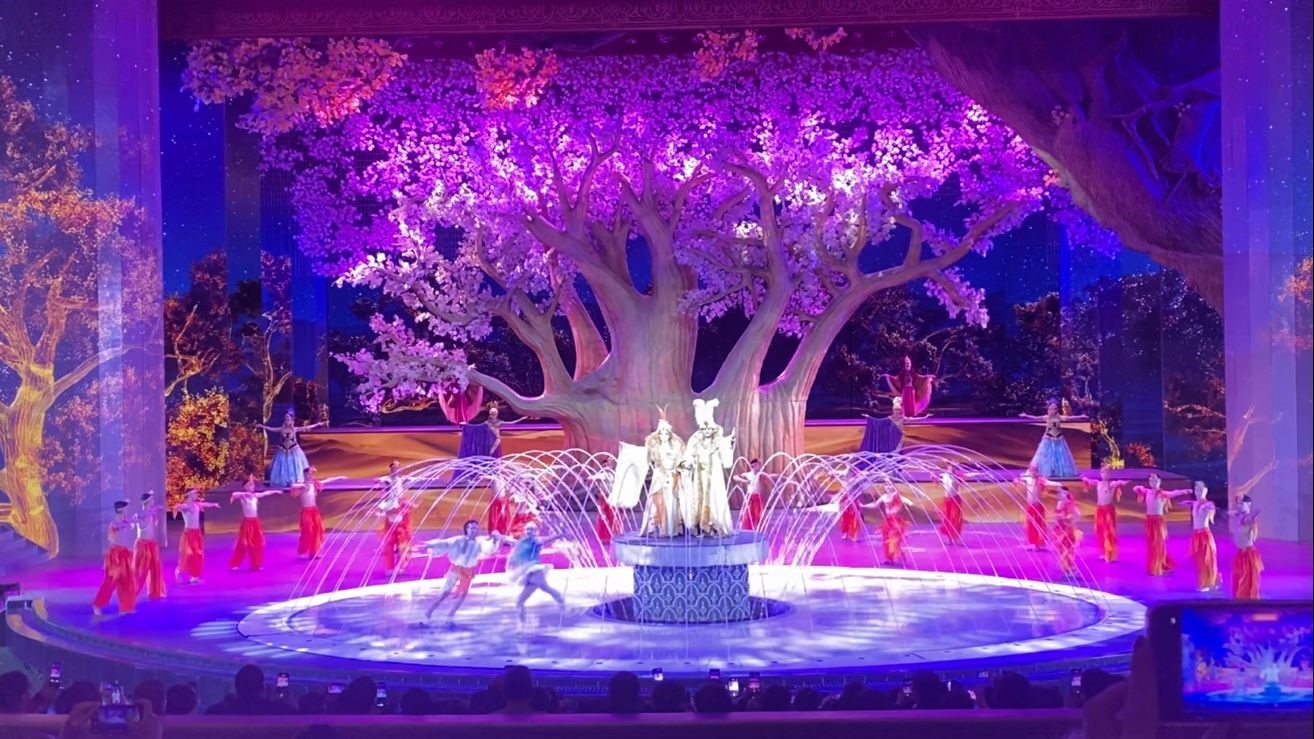
Photo: Jo Pierri
By the end of the evening, my phone was exhausted from the aggressive picture snapping and my jaw was numb from hanging agape for the entire duration of the show. My mind has yet to fully process what my eyes saw, and my words can by no means do the spectacle justice. All I can say it this: I’m sure they’ll be landing a helicopter on stage next time.
Jo Pierri represented To Vima International Edition at the 6th World Media Summit. The conference was hosted by the Xinhua News Agency and took place October 12-17 in the Xinjiang Uygur Autonomous Region, northwest China.

